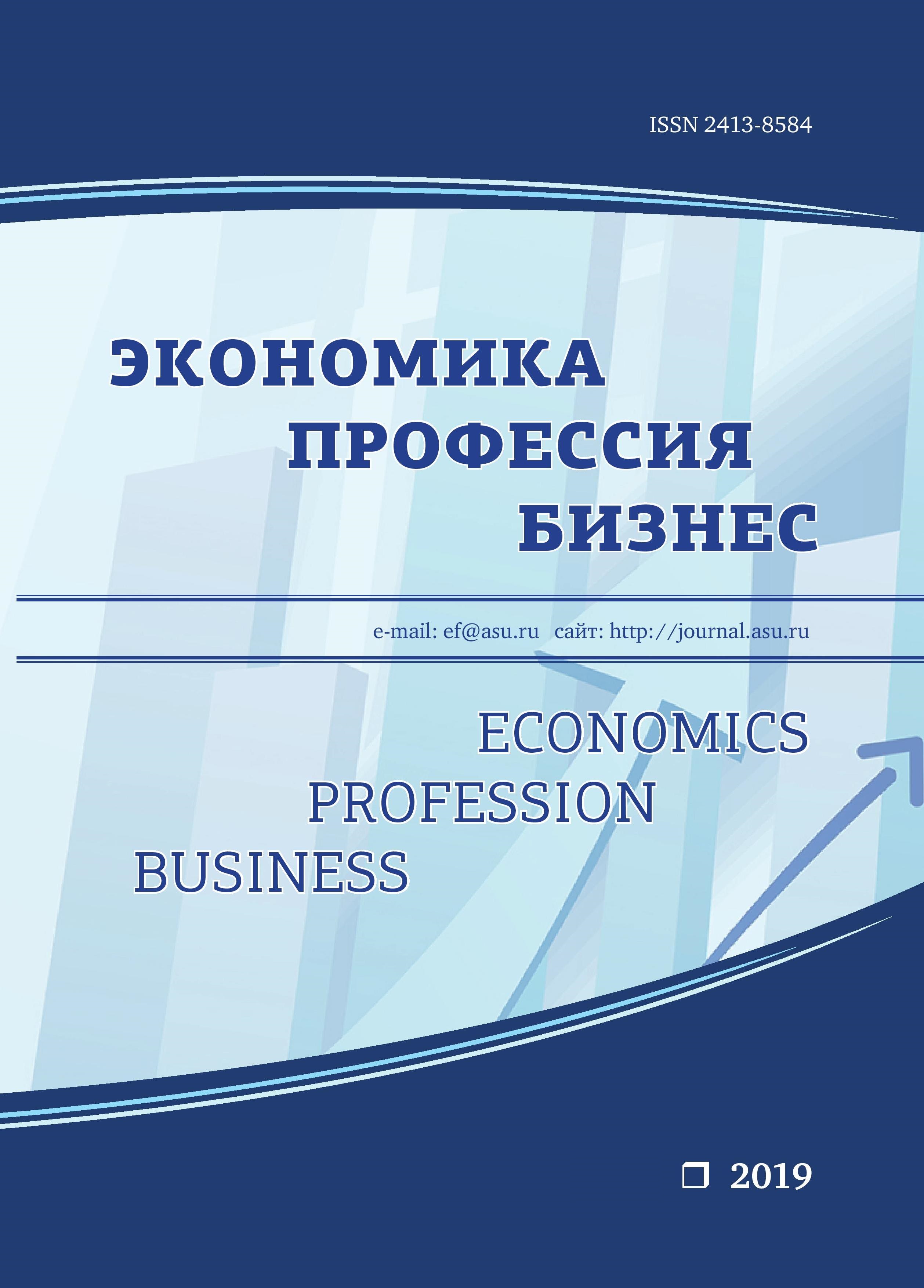"CHINESE MIRACLE" AND PROBLEMS OF ACCELERATED ECONOMIC DEVELOPMENT
Abstract
This article is devoted to the study of the results of rapid economic growth on the example of the People's Republic of China. Forty years have passed since the beginning of the openness reforms in China. They are characterized by the rapid growth of China's economic power, the improvement of the well-being of the inhabitants of that country, as well as the strengthening of the state's place in the international arena. With the support of foreign investment in the early stages, China itself becomes an investor. Techno-intensive industries hold an important share of China's exports. Despite the rapid growth of economic indicators, China is facing new challenges for developing countries. The accelerated development of the state has serious environmental, political and economic consequences, from pollution to corruption and the lag of certain regions from the overall pace of the country's development. These problems are expected to be addressed through a number of measures taken by the Government in the coming decades: investment market reforms, reorientation of international trade to developing countries, green economies, market reform real estate, addition to the legislative framework, the creation of new controls and reform of existing ones and so on. The reform process is inevitable and is the key to the successful development of the People's Republic of China.
Downloads
Metrics
References
China National Bureau of Statistics: 2014 National Economic and Social Development Statistics Bulletin, 2015, URL: http://www.stats.gov.cn/tjsj/zxfb/201502/t20150226_685799.html (accessed: 18.09.2019).
Guo Xiaodan (2014) Regional Deconstruction, Effectiveness and Improvement of China's Renewable Energy Policy, Comparative Economic and Social System, No.11. URL: https://max.book118.com/ html/2019/0218/5002230034002012.shtm (accessed: 10.09.2019).
Li Hong (2011) Comprehensive Evaluation and Structural Optimization of Renewable Energy Development in China, Resource Science, No.3. URL: http://www.docin.com/p-237486163.html (accessed: 12.09.2019)
Li Qinghua (2011) an Empirical Analysis of the Relationship between Environmental Pollution and Economic Growth in China, Resource Development and Market, No.2. URL: https://www.ixueshu.com/document/155f392 90eacb44e318947a18e7f9386.html (accessed: 16.09.2019) doi 10.3969/j.issn.1005-8141.2011.02.010.
Li Zilian (2013) The Causes of Income Inequality: A Description of the Evolution from Thought to Reality, Social Science, No.3. URL: http://www.doc88.com/p-0867211416997.html (accessed: 16.09.2019) doi 10.3969/j.issn.0257-5833.2013.03.004.
Liu Wei, Cai Zhizhou (2013) International Comparison of China's Economic Growth, Economic Crossroads, No.1. URL: http://www.cssn.cn/jjx/xk/jjx_lljjx/jjx_tjysljjx/201310/t20131024_516859.shtml (accessed: 17.09.2019).
Nie Yongyou (2016) New Political Economy of the Rise of Great Powers, Sichuan People's Press, 214-215.
Sun Yueping (2007) Improving Social Well-being in Transforming the Way of Economic Development, Modern Economic Discussion, No.8. URL: https://www.docin.com/p-836147187.html (accessed: 17.09.2019).
Wang Feicheng (2014) A Study on the Impact of Economic Growth on Environmental Pollution and Regional Differences based on inter-provincial dynamic panel data models, Journal of Shanxi University of Finance and Economics, No.4. URL: https://www.ixueshu.com/document/2880f52fcde54c5f318947a18e7f9386.html (accessed: 18.09.2019).
Wang Hongliang (2012) An Empirical Study on the Impact of Income Inequality on Economic Growth, Economic Issue, No.4. URL: http://www.docin.com/p-1008541987.html (accessed: 18.09.2019)
Wu Jingxuan (2014) Reform cannot avoid seven questions, Leadership Wenzhu, No.11. URL: http://www. cqvip.com/QK/80105X/201421/662854079.html (accessed: 18.09.2019).
Xu Bing (2014) How Anti-Corruption Affects the Economy, China Youth Daily, August 13. URL: http:// zqb.cyol.com/html/2014-08/13/nw.D110000zgqnb_20140813_3-02.htm (accessed: 18.09.2019).
Zhai Jianming (2014) The Urgent Need for a New GDP Statistics, People's Forum, No.3. URL: http:// theory.people.com.cn/n/2014/0318/c40531-24666931.html (accessed: 18.09.2019).
Economics Profession Business is a golden publisher, as we allow self-archiving, but most importantly we are fully transparent about your rights.
Authors may present and discuss their findings ahead of publication: at biological or scientific conferences, on preprint servers, in public databases, and in blogs, wikis, tweets, and other informal communication channels.
Economics Profession Business (EPB) allows authors to deposit manuscripts (currently under review or those for intended submission to EPB) in non-commercial, pre-print servers such as ArXiv.
Authors who publish with this journal agree to the following terms:
- Authors retain copyright and grant the journal right of first publication with the work simultaneously licensed under a Creative Commons Attribution License that allows others to share the work with an acknowledgement of the work's authorship and initial publication in this journal.
- Authors are able to enter into separate, additional contractual arrangements for the non-exclusive distribution of the journal's published version of the work (e.g., post it to an institutional repository or publish it in a book), with an acknowledgement of its initial publication in this journal.
- Authors are permitted and encouraged to post their work online (e.g., in institutional repositories or on their website) prior to and during the submission process, as it can lead to productive exchanges, as well as earlier and greater citation of published work (See The Effect of Open Access).









